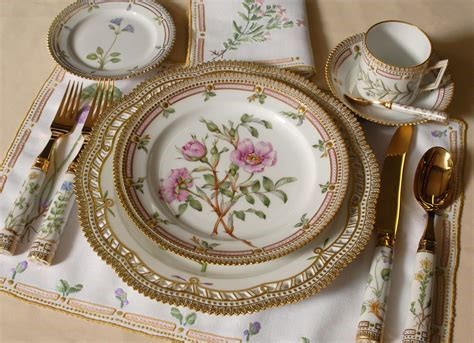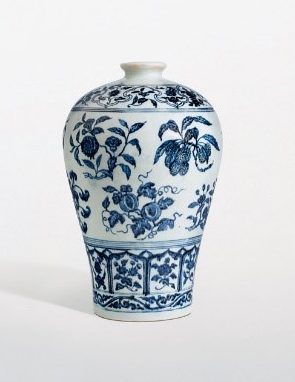This is the second of a three-part series dedicated to my good friend Ana who works tirelessly to walk with women from North Africa who are sold into sexual slavery in Europe.
We have already examined the illustration of the relatively fragile acanthus-leaf to see how the Greeks failed to appreciate the importance of the more fragile of the sexes for the building of a free society.
When something is marked “Fragile, handle with care,” it usually means that it is valuable, perhaps priceless and often extremely beautiful.
 One can think of porcelain china. The Royal Copenhagen Flora Danica is commercially produced china. It is described as “a stunning piece of art. Every piece must be held to be appreciated. The beauty of the design, the lushness of its art, the feeling of royalty that its gold espouses is second to none.”
One can think of porcelain china. The Royal Copenhagen Flora Danica is commercially produced china. It is described as “a stunning piece of art. Every piece must be held to be appreciated. The beauty of the design, the lushness of its art, the feeling of royalty that its gold espouses is second to none.”
Flora Danica is fragile. If you were to receive a set by mail, the shipment would be marked “handle with care.” But fragile does not mean worthless. A five-piece setting of Flora Danica sells for $6,975. It is very expensive, but not priceless. And if you were to drop it you would destroy it.
The value of a woman is beyond measure
The most exquisite china is not commercially produced but is made by hand. As its name indicates, it comes from China.
Cobalt blue porcelain dates back from the 9th century in the Henan Province in China. But it wasn’t until the 14th century that fine and translucent blue and white porcelain began being produced in Jindezhen, which became the Porcelain capital of China. Cobalt blue oxide was the pigment used to underglaze the chinaware, but it was an extremely precious product, with a value almost twice as much as gold. Blue and white porcelain in China reached the height of its excellence during Emperor Kangxi of the Qing Dynasty, between 1661 and 1722.
During a Sotheby’s auction in Hong Kong, a stunning Blue and White Porcelain Imperial Vase sold for $21.6 million to an anonymous telephone bidder. Dating from the Ming Dynasty period, the 500-year-old Chinese vase is the most expensive piece of blue and white porcelain ever sold.
Here is a piece of china that is extremely fragile and virtually without price. You would treat such china with extreme care. It is precious, almost priceless. You would  display it in a place of honor where everyone could appreciate its beauty and craftsmanship. You would never deliberately strike it. To do so would reduce something priceless to a worthless pile of shards.
display it in a place of honor where everyone could appreciate its beauty and craftsmanship. You would never deliberately strike it. To do so would reduce something priceless to a worthless pile of shards.
A woman, like china, may be fragile. But, as with china, that fragility does not reduce her immeasurable worth. And unlike china, a woman who is mistreated is never worthless. She may be broken but she has not lost her value. She is, in fact, intrinsically valuable. Her maker has deemed her so.
A woman’s worth is not found in physical strength, but in terms of her identity as the image of God. She is of inestimable value to the society as a powerful nurturer of nations.
We read of this virtue in Proverbs, where Wisdom is personified as a female, priceless and desireable (Proverbs 3:13-17):
13 Blessed are those who find wisdom,
those who gain understanding,
14 for she is more profitable than silver
and yields better returns than gold.
15 She is more precious than rubies;
nothing you desire can compare with her.
16 Long life is in her right hand;
in her left hand are riches and honor.
17 Her ways are pleasant ways,
and all her paths are peace.
As Ana has so profoundly said: “A woman is fragile, not because she is unbreakable, but because she is priceless!”
- Darrow Miller






